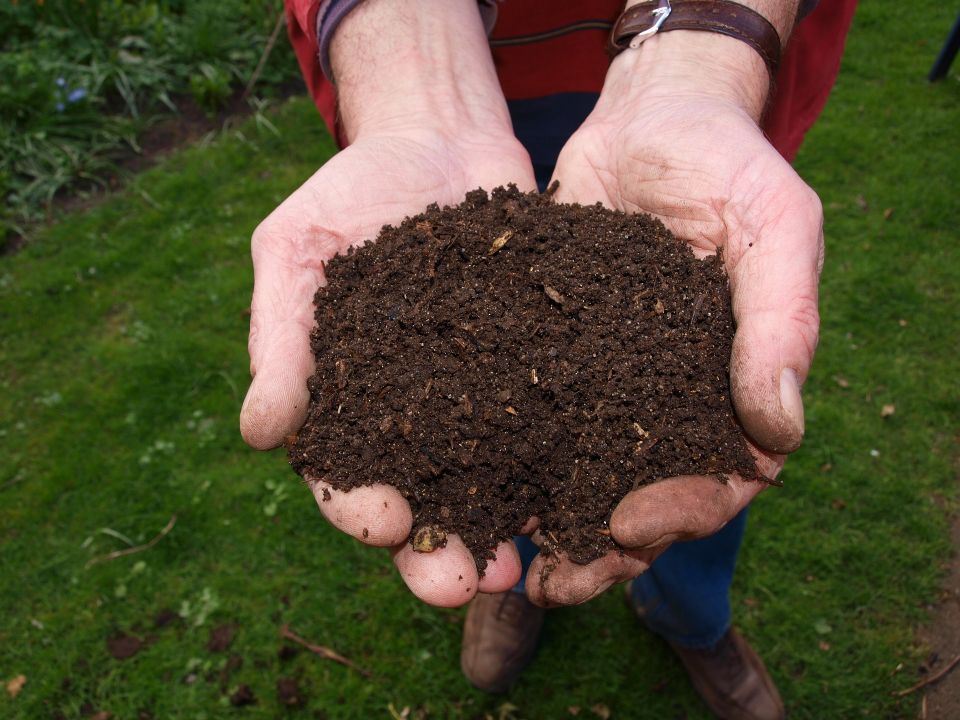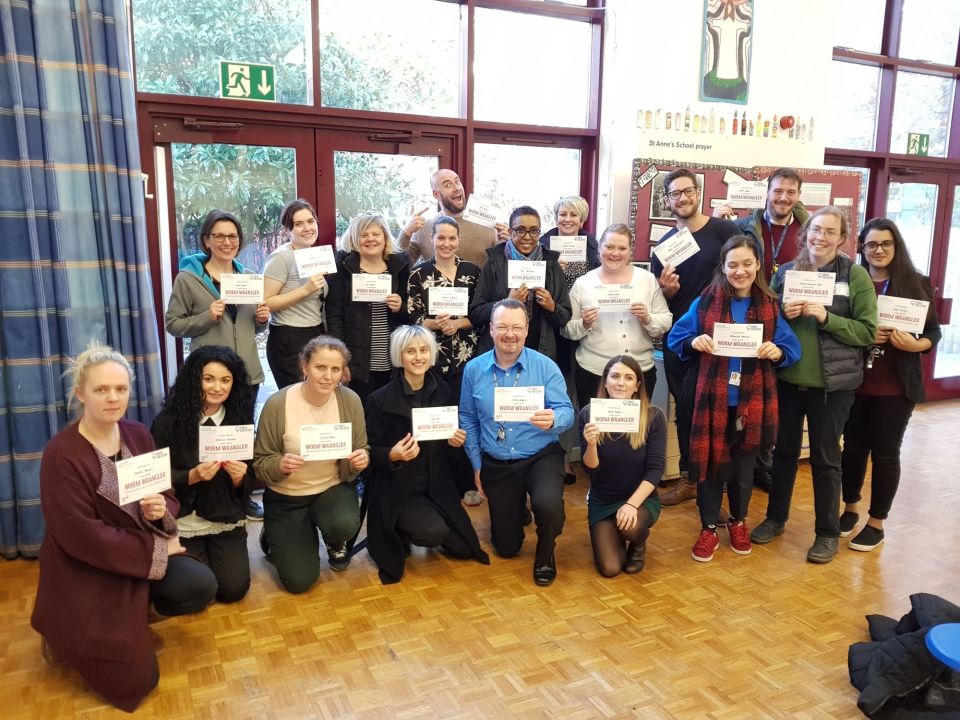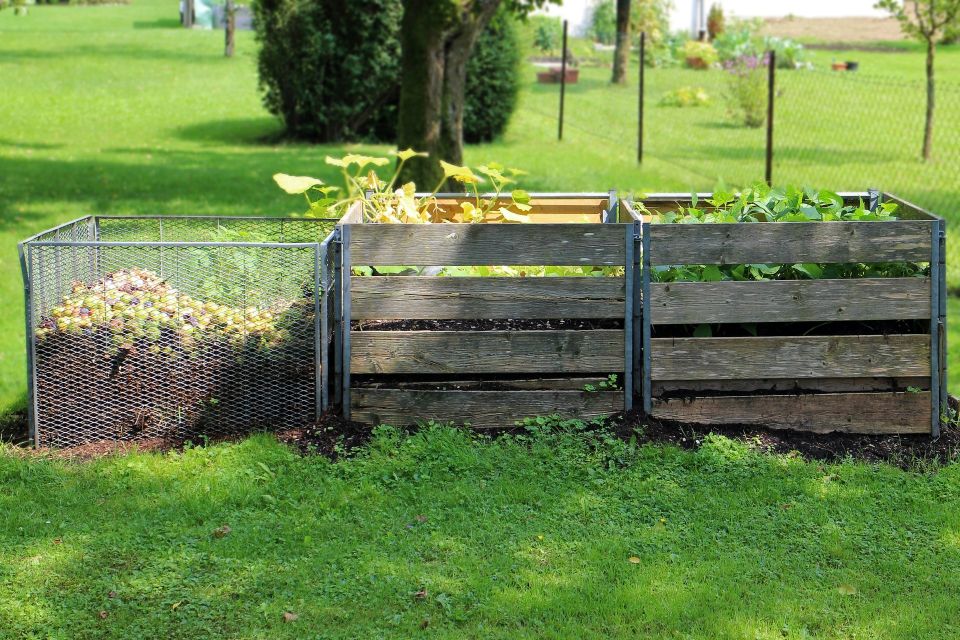How to start composting

Curious about composting? Our Edible Playgrounds team can teach you a trick or two.

There is no such thing as a garden failure when you’ve got a compost bin to keep topped up - if your plants don’t make it, compost them! We suggest that you put predominantly waste from your garden into your compost as it creates a closed loop - garden waste is composted, then compost is used on the garden. You can also add other compostable waste, but be mindful of the fact that the quality of your compost will be determined by the quality of the ingredients you put into it.
After a couple of years of fruit and vegetable growing, the nutrients in soil will start to deplete and it will become necessary to add nutrients back in to continue producing a healthy crop. Producing your own compost will eliminate the cost of buying in fertilisers to replace these nutrients.
Our Edible Playgrounds are equipped with both compost bins and a wormery, so schools can learn all about food chains, life cycles, habitats and organic growing as well as much more, just by setting these up with their classes. As well as being cost-effective, it can unlock new activities and a lot of learning potential.

Here are our top tips to ensure you get the best results:
- Position your compost bin in a semi-shaded space in your garden
- Aim for a ratio of 50% green (grass cuttings, dead/inedible veg plants, weeds) and 50% brown (autumn leaves, cardboard, shredded paper)
- To be sure that you’re not spreading weeds around your garden, be careful to avoid weeds which have gone to seed or weeds like bindweed which can grow from just a part of their root
- Cut or tear up any large items before you add them to the compost; a whole pruned branch will not compost easily but smaller chunks of it will
- Be sure to ‘turn’ your compost regularly to speed up the composting process; use a fork or spade to get air right down to the bottom and make sure everything is mixed together
- Your compost should be relatively odour free; if it does start to smell then it’s probably too wet so try adding more brown ingredients
- If you notice that your waste isn’t breaking down then it could mean that your compost is too dry, so add some water or some more green ingredients
- Be patient! The composting process can take from 6 months to 2 years
For schools:
- In the school environment there will be lots of people adding to the compost so have a sign next to your bins with clear instructions as to what should or should not be composted
- Appoint pupils to be compost monitors; they can check that the right waste is going in and keep an eye on the progress

Alongside having a compost bin we also recommend having a wormery. There are certain earthworm species that feed on the bacteria on food waste and produce incredibly nutrient-rich fertilisers which are great for gardens. A wormery will produce ‘vermicompost’, which looks a lot like regular compost but is even more packed with nutrients, plus ‘worm tea’ which is a very potent liquid fertiliser.
Here are our tips for wormery success:
- It’s important to keep the wormery in a sheltered, shady spot, such as under a tree or shrub – even in a shed if you have space!
- Worms thrive in warm, moist conditions so be sure to keep them warm in winter by wrapping the wormery in bubble wrap or adding a lid made of cosy carpet
- The worms will also appreciate some shredded paper or cardboard to stop it getting too wet in the wormery
- It’s better to add ingredients gradually, making sure that they always have food but not overloading them; just one tray of waste at a time is enough
- When your ‘vermicompost’ is ready, make sure you mix it with other soil before spreading it around the garden; it’s very strong and could otherwise burn your plants
- Place a plastic bottle under the tap and drain the ‘worm tea’ every month
- Dilute the ‘worm’ tea with water before you use it on the garden, aiming for a ratio of 1:20
- The fertilisers will be enjoyed by all of your plants but especially your cabbages and broccoli which need lots of nutrients to grow
For schools:
- Feed your school’s worms food waste from the staff room, pupils’ fruit snacks plus coffee grounds and tea leaves (do not add the whole teabag as often not all of it will be compostable)
- Appoint pupils to be worm monitors; they will love the responsibility!
Good luck getting started on your composting and wormeries! If you’re a teacher and would like to know more about this and similar topics, check out our Edible Playgrounds section or get in touch: Schools@treesforcities.org.
Donate to Trees for Cities and together we can help cities grow into greener, cleaner and healthier places for people to live and work worldwide.
Donate